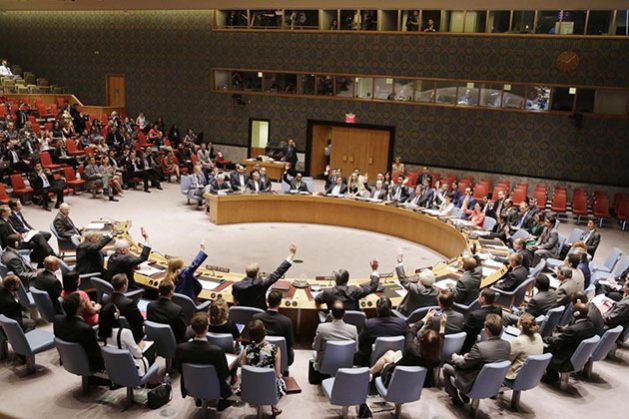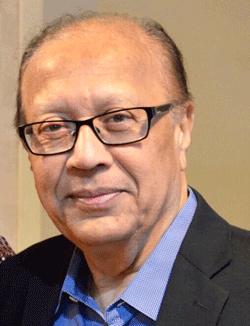Abusive Use of Veto Power Against Global Public Opinion -- Why?

NEW YORK, Feb 27 (IPS) - With its current cash crisis, UN's leadership is finding itself in a helpless situation both politically and financially. The UN’s credibility has reached rock bottom.
Abusive use of veto power against global public opinion over the years, more so in recent times, have thrown spanners at all potentially meaningful efforts at the UN. Such irrational and national-interest generated actions have been ominous for the UN to undertake its Charter-mandated roles.
The General Assembly with its universal membership is so toothless that its decisions are forgotten before the those get formally printed as UN documents.
I am often asked, during ‘questions and answers’ segment following my public speaking, if I want to recommend one thing that would make the UN perform better, what would it be. My clear and emphatic answer always has been “Abolish the Veto!”
Veto is undemocratic, irrational and against the true spirit of the principle of sovereign equality enshrined in the Charter of the United Nations.

In an opinion piece on the IPS wire service back in March 2022, I wrote: “Believe me, the veto power influences not only the decisions of the Security Council but also all work of the UN, including importantly the choice of the Secretary-General.”
In the same opinion piece, I asserted that “I believe the abolition of veto requires a greater priority attention in the reforms process than the enlargement of the Security Council membership with additional permanent ones.
Such permanency is simply undemocratic. I also believe that the veto power is not ‘the cornerstone of the United Nations’ but in reality, its tombstone.”
With interlinkages and interconnectedness of all the matters being handled by the world body, challenges of maintaining international – my preferred expression is “global” -peace and security have become absolutely and threateningly overwhelming.
I believe increasing frequency of unilateral exercise of veto by erstwhile superpowers is a clear manifestation of that complexity. So, the global good has been set aside in the narrow political interest of the leadership in those countries.
The situation demands realistic and credible actions by the UN leadership to tackle the biggest existential crisis being faced by the UN in its nearly eight decades of existence.
We need to revisit the operational credibility of our much-cherished world body. What was needed in 1945 to be enshrined in the UN Charter is to be judged in the light of current realities.
If the Charter needs to be amended to live up to the challenges of global complexities and paralyzing intergovernmental politicization, let us do that. It is high time to focus on that direction.
Blindly treating the words of the Charter as sacrosanct may be self-defeating and irresponsible. The UN could be buried under its own rubble unless we set our house in order now.
With the 2030 deadline for SDGs knocking at the door, the call in the Bali G-20 Summit declaration for “inclusive multilateralism” is a timely alert to realise that current form of multilateralism dominated by rich and powerful countries and well-organized vested interests, on most occasions working with co-aligned objectives, cannot deliver the world we want for all.
That elitist multilateralism has failed.
Minimalistic, divisive, dismissive, and arrogant multilateralism that we are experiencing now gives honest multilateralism a bad name. Multilateralism has become a sneaky slogan under which each country is hiding their narrow self-interest to the detriment of humanity’s best interest. It is a sad reality that these days negotiators play “politicking and wordsmithing” at the cost of substance and action.
Multilateralism - as we are experiencing now - clearly shows it has lost its soul and objectivity. There is no genuine engagement, no honest desire to mutually accommodate and no willingness to rise above narrow self-interest-triggered agenda. It has become a one-way street, a mono-directional pathway for the rich and powerful. Today’s multilateralism needs redefining!
Let me conclude by asserting that, all said, I continue to hold on to my deep faith in multilateralism and, at the same time, my belief and trust in the United Nations as the most universal organization for the people and the planet is renewed and reaffirmed!
Ambassador Anwarul K. Chowdhury is the Founder of the Global Movement for The Culture of Peace (GMCoP), Permanent Representative of Bangladesh to the UN (1996-2001) and Under-Secretary-General and High Representative of the United Nations (2002-2007).
IPS UN Bureau
Follow @IPSNewsUNBureau
Follow IPS News UN Bureau on Instagram
© Inter Press Service (2024) — All Rights Reserved. Original source: Inter Press Service

